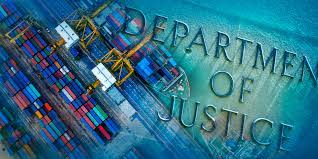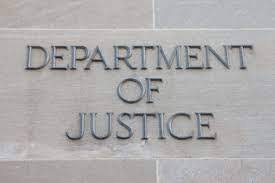DOJ Repeats Warnings on Aggressive Criminal Enforcement of Sanctions and Export Controls

As everyone knows, I tend to repeat myself — DOJ does as well. Over the past year, DOJ has warned global companies — over and over — about the coming criminal enforcement storm against companies for sanctions and export control violations.
DAAG Choi highlighted the response to Russia’s invasion of Ukraine and specifically cited: (1) OFAC’s addition of more than 2,500 Russia-related targets to the Specially Designated Nationals (“SDN”) list, including over 80 percent of Russia’s banking sector and all of Russia’s top-10 Russian banks; (ii) Commerce’s Bureau of Industry and Security (“BIS”) regulatory steps to restrict export of dual-use items to Russia, resulting in a 50 percent decrease in total exports to Russia.
Additionally, DAAG Choi identified BIS’ restrictions against exports to China of advanced semiconductors used in advance weapons systems, supercomputers and artificial intelligence.

DAAAG outlined DOJ’s three top priorities in this area as its: KleptoCapture Task Force, the Disruptive Technology Strike Force and its renewed focus on corporate enforcement.
The KleptoCapture Task Force was initiated in February 2022 to focus prosecution on oligarchs and other supporters of the Russian regime. SInce its inception, the Task Force has seized more than $500 million in oligarch assets, including real estate, yachts and airplanes. In addition, the Task Force has charged more than 40 individuals, including lawyers and money managers, as well as procurement networks that supply the Russian military.
The DTSF focuses on prosecution of companies and individuals who violate U.S. laws governing the transfer of technology. in May of this year, the DTSF brought five separate prosecutions across the country. Recently, the DTSF prosecuted two cases involving procurement networks used to send microelectronics and micro-displays used in Russian military equipment.
With respect to DOJ’s corporate enforcement initiative, DAAG Choi outlined its focus on a variety of industries across geographic regions. Earlier this year, DOJ appointed its first Chief Counsel and Deputy Chief Counsel for Corporate Enforcement in the NSD. DOJ has hired half of the 25 new prosecutors to handle these new corporate criminal cases. in March, NSD updated its Voluntary Disclosure Program covering potential violations of export control and sanctions laws.
As part of this initiative, DOJ has coordinated with its interagency partners, Treasury, Commerce and States, and is establishing new relationships with FinCEN’s Office of the Whistleblower and BIS’ analytics team.
DAAG Choi emphasized the importance of companies to implement effective ethics and compliance programs to stop the illicit flow of funds and sensitive technologies in the international economy. To this end, DAAG Choi emphasized that companies need “to invest in compliance now or pay the price later.”

Specifically, DAAG Choi recommended that companies review their compliance policies to ensure that they put a premium on national security compliance risks, especially companies that operate in high-risk industries or who deal with sensitive technologies. In this respect, DAAG Choi emphasized the importance of self-disclosing violations to relevant agencies and DOJ, as warranted, to mitigate any potential harms.
As she closed her speech, DAAG Choi stated, “Make sure that you come to us before we come to you.”















